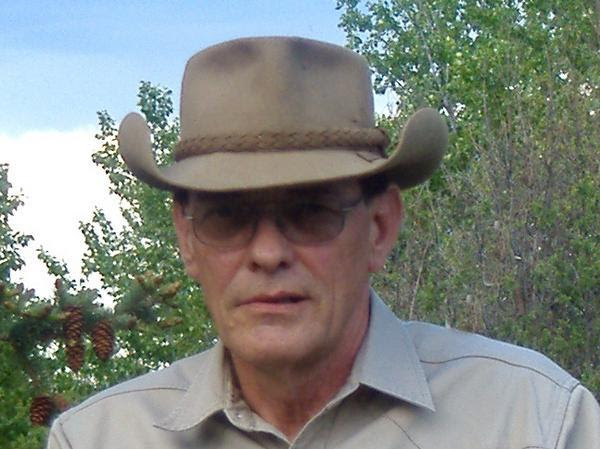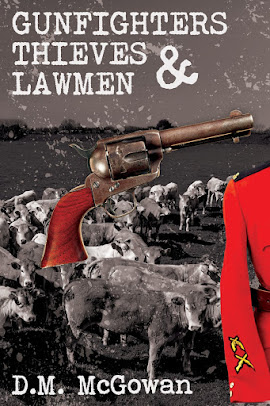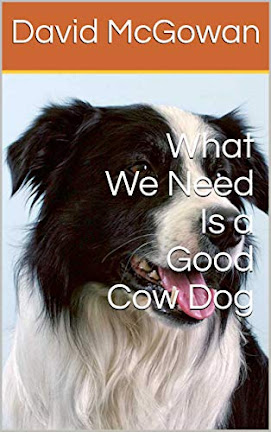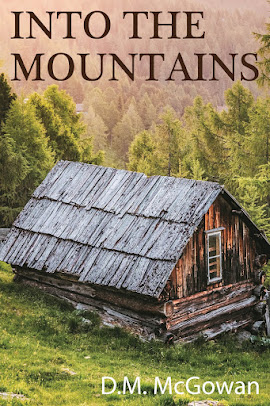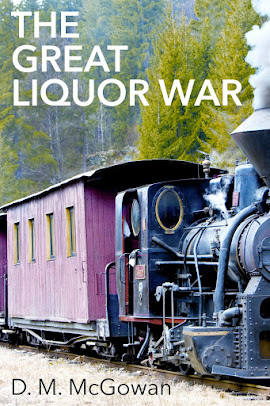I met him in 1974 and we became good friends. He played guitar and sang in a weekend band I was part of and we spent many Sunday mornings punching holes in pieces of paper from a variety of distances. The following story is one he related but I've changed all the names, including his. He was either 20 or 21 when this happened and older by a year or two than those in his "wing" including the Lieutenant, or as his would have said at that time and place "Leftenant."
He walked away from flying in 1945 but, seeing the new versions of the "Great Lakes" byplane in the 1970s he worked at attaining his licence and took a solo flight in one before he passed away.
Deacon
Before men in
planes with black crosses started shooting at him with 7.92 mm bullets Harry
Burnside had been a singer. He stood in front of fifteen, twenty and sometimes
thirty man orchestras and sang the Dorsey, Kenton, or Ellington songs or whatever
else the crowd in front and the band behind wanted to hear. He had worked his
magic in Detroit, Chicago, Pittsburgh, Cincinnati and his home town, Windsor, Ontario. Harry thought it was only right to use his natural talent, his
voice to make at least part of his living. It had also been a great way to
start a young life and learn the music and entertainment business from
professionals. It was only incidental that it was the perfect place for a
teenager to learn from the masters how to party.
Sometimes horrendous
events are necessary to save a young man from himself. In Harry’s case it was
the war in Europe that brought a young man’s party life to a close, at least
temporarily. Of course it also accelerated the danger in that life.
Not that Harry
rushed to a recruiting station in the autumn of 1939. Some of his young friends
and even the older men he worked with certainly did. It was one of the older
musicians who convinced him signing up for service was the thing to do.
“Folks ‘r sayin’
this here war is gonna be over in no time,” Marvin, a trumpet player said.
“They is sorely mistaken. I bin readin’ up on these here Germans an’ they got
‘em an army. British ain’t got nothin’ an’ they’s gonna get whacked.”
“Are you
suggesting we Canadian boys should go over there and get whacked, as you say,
right along with them?” Harry asked.
“First off, I
ain’t a Canuk, I’m a southern boy,” Marvin said. “Second, when things get tough
they’ll be comin’ for us anyway. Might as well sign up for somethin’ you want
t’ do instead o’ somethin’ the government thinks you’d be good at.”
“You’re country
isn’t in it,” Harry pointed out.
“Not yet,” Marvin
responded. “Now, you’ve been workin’ here an’ there along with singin’. I don’t
got no income but my trumpet. A man signs up he’ll get three squares a day an’
a cot.”
Harry took a drink
of his whiskey and water and cast his gaze around the musicians gathered in the
late night or, to those who were not musicians, early morning booze hall.
“You know, Marv,
I’ve always wanted to learn to fly a plan,” Harry said.
Marvin clapped him
on the shoulder. “Now you’re talkin’, boy. Royal Canadian Air Force. What say
we go sign up first thing in the mornin’?”
Harry looked at
his watch. “Might I suggest early this afternoon? I might be awake by then.”
Somewhere between Windsor, Ontario and Ashford, Kent,
Harry lost touch with Marvin, but not with men from the southern States. Almost
half the men stationed on the airfield were Americans who had travelled north
to Canada and signed on with the RCAF.
Though they wore
Canadian uniforms and insignia they were technically in Royal Air Force
squadrons. Their squadron commander was a British major, and Harry’s wing
commander a Canadian Lieutenant. The other two Canadian pilots presently
assigned to their understaffed wing were actually from Arkansas. In the
two man barracks enjoyed by RAF pilots one of those southerners, Otis Tyler was
Harry’s bunk mate.
“Ah hear we all
getting’ new radios next month,” Otis said as the two pilots walked down the
hall one early morning in late August.
Harry shrugged
with one shoulder as he held the door open with the other hand and let Otis out
into the humid dawn. “Be fine if they’re better than the T9. But if they
aren’t, well, I’m starting to get used to being up there all by myself.”
“Mighty handy fur
tellin’ somebody where you’s ‘bout t’ crash,” Otis noted.
“As long as they
work and you’re no more than a mile away” Harry countered. “The T9 is good for
about that far. You’re probably better off depending on a farmer seeing you go
down.”
Otis chuckled.
As they approached
the mess hall their wing leader, Lieutenant Mapes reached the door and opened
it for them.
“Good news chaps,”
the officer said as the two non-coms passed through the door he held open for
them. “Just spoke with the CO. We stand down today.”
“Excellent!” Harry
said. “Now I can have some real breakfast and more than one cup of coffee.”
“Yuh all worry too
much ‘bout that coffee thing,” Otis said.
“Quite good
policy,” the Lieutenant said.
“Nothin’ to it,”
Otis responded. “Yuh all just take a cola bottle up with yuh.”
“I say, old boy, a
bit hard to pee in a bottle when one is trying to avoid the 109 that is glued
to your tail. Not to mention that bottle flying around loose in the cockpit.”
“Yuh all make sure
yuh strap it in so it don’ fly ‘round,” Otis said. “As fur takin’ a leak when
Gerry’s on muh tail an fillin’ my magic carpet full o’ holes, why ‘bout then I
don’ have no trouble passin’ water.”
Lieutenant Mapes
laughed. Harry grinned and shook his head in resignation.
“Since we aren’t
going up to be shot at, perhaps we could talk about something else?” Harry
suggested.
“Our Calm Colonial
boy is right once again,” Mapes said. “We have a day to repair gear.”
“And talk about
new radios,” Harry suggested.
“There isn’t anything
to talk about,” Mapes said. “I’ve heard the same rumours as you men. However, I
haven’t heard anything from the Old Man and I haven’t seen any radios. Other
than the 9 in my Spit that quit working entirely the last time I was up.”
Later that day, Otis
asked Harry to join him and some other airmen to study and review the local
ladies and pubs. However, Harry had grown out of the need to wake up with a
pounding hangover. He had already had years of partying. Besides, bringing in
bullet scarred Spitfires had made the drinking bouts seem very unimportant. His
mates, usually a year younger and sometimes more still asked him even though he
seldom went with them.
An hour after the
other pilots had gone into town Harry walked off the base and caught a ride into
Ashford. He walked the streets for awhile admiring the buildings and the
history.
Occasionally a
Junkers 88 would fly across the English
Channel very close to the water, start a
steep climb to miss the Cliffs of Dover and release a bomb mounted to its belly
at the end of that climb. The speed of the bomber combined with the force of
the climb would cast that bomb for a very long way and it would land wherever
the laws of physics, geology, and aerodynamics might decide and no man could
say. On that beautiful day in late August, 1940 a building Harry had admired
moments before and at that moment was no more than a block and a half away,
disappeared in a cloud of dust, smoke and noise.
Harry Burnside had
been flying over Britain for three months. He had been as far as France on
a half dozen occasions. He had no idea how many dog fights he had been in but
had shot down three Me 109s and crash landed twice. He had landed successfully
in Spitfires that probably should have quit flying several minutes before. He
had been scared out of his mind on those occasions but had worked his way
through it.
That day, on the
streets of Ashford, after the completely random bombing of a very historic
building, Harry Burnside could not control the choking fear.
Looking around he
saw the sign for a pub, the Anvil and Hammer. He stepped through the door and
saw ale glasses stacked on the bar. He turned the pint glass over and said to
the barman, “Whiskey.”
The barman could
see by the look on Harry’s face that discussion might be dangerous. He poured a
shot into the ale glass.
“Fill it,” Harry
ordered.
The inn keeper
complied.
Harry downed the
whiskey and noticed only in passing that it was a smooth, single malt.
He
put the glass back down on the bar and said, “Again.”
Once
it was full, he downed the second glass.
He
remembered opening the door to his barrack, but very little after that.
Much
later Otis Tyler returned to find his bunk mate, the man who usually refused to
go drinking with his mates, passed out on the floor.
“Burnside,”
he said, as he picked Harry up and placed him on the bunk, “yuh all just like
them travelin’ preachers back t’ home; Preachin’ hell fire an’ brimstone then
next thing yuh got some farmer’s daughter out behind the tent.”
And
that is how Sergeant Pilot Harold Burnside became known as “Deacon.”

